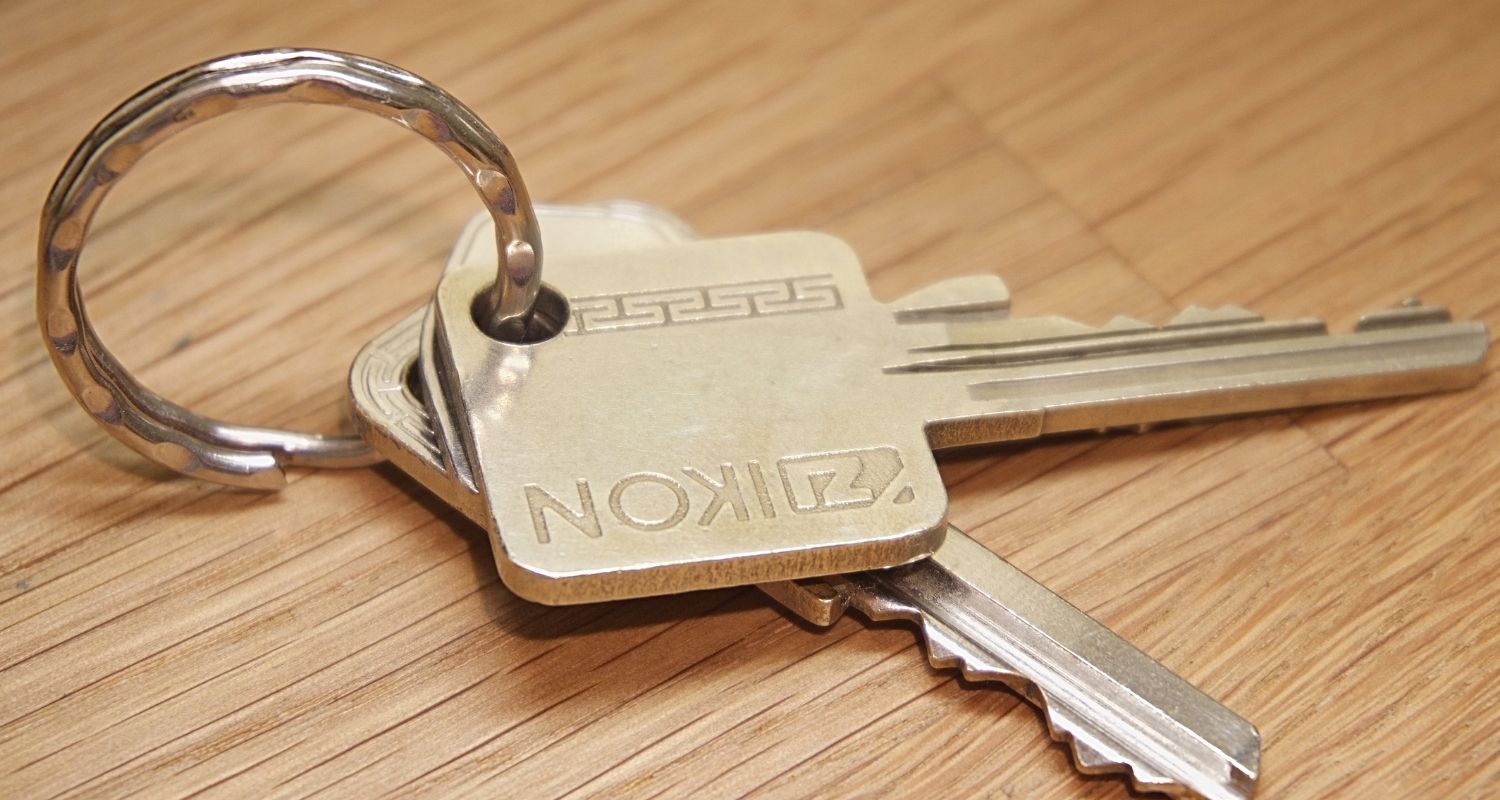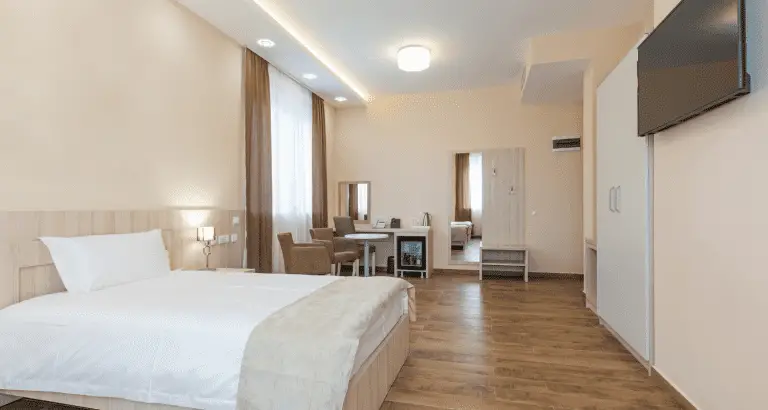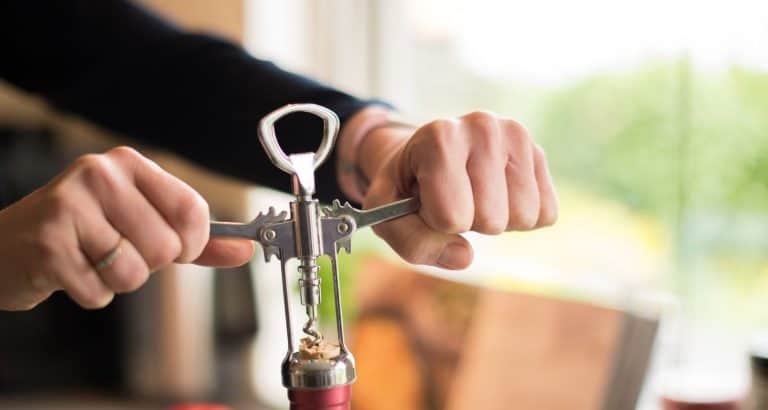How Do Hotel Keys Work? A Comprehensive Guide
Have you ever wondered how those seemingly ordinary plastic cards can unlock the doors to your hotel room? The magic behind hotel keys is a fascinating blend of technology and security measures, ensuring your privacy and convenience during your stay.
If you’re short on time, here’s a quick answer to your question: Hotel keys are typically encoded with electronic data that communicates with the door lock system, allowing authorized access to specific rooms.
This technology has evolved from traditional metal keys to magnetic stripe cards, and now more advanced options like RFID and mobile keys.
In this comprehensive article, we’ll delve into the intricate workings of hotel keys, exploring the different types, the underlying technologies, and the security measures in place to protect your privacy.
We’ll also discuss the future of hotel key systems and how they are adapting to the ever-changing landscape of technology and guest expectations.
The Evolution of Hotel Keys
The humble hotel key has undergone a remarkable transformation over the years, evolving from simple metal keys to cutting-edge mobile technology. This evolution has been driven by the need for enhanced security, convenience, and a seamless guest experience.
Let’s take a closer look at the various stages of hotel key development.
Traditional Metal Keys
In the early days of the hospitality industry, traditional metal keys were the norm. These keys, often bulky and cumbersome, were crafted from metal and featured intricate patterns that corresponded to the locks on guest room doors.
While they provided a basic level of security, these keys were susceptible to duplication and could easily be lost or misplaced. According to Statista, in 2021, around 15% of data breaches in the hotel industry were attributed to physical key theft or loss.
Magnetic Stripe Cards
The introduction of magnetic stripe cards revolutionized the hotel key industry. These credit card-sized keys were encoded with unique digital information that allowed guests to access their rooms with a simple swipe.
This technology offered improved security and convenience, as keys could be easily deactivated or reprogrammed. However, magnetic stripe cards were still vulnerable to demagnetization and data corruption, leading to the need for further advancements.
According to Hotel News Resource, by the early 2000s, over 80% of hotels had adopted magnetic stripe key systems.
RFID Keys
Radio Frequency Identification (RFID) technology brought a new level of sophistication to hotel keys. RFID keys emit a unique radio signal that is recognized by the lock, allowing guests to simply hold the key near the reader for access.
This contactless system offers improved security, as the keys are more difficult to duplicate and can be easily deactivated. Additionally, RFID keys can be programmed with expiration dates and time restrictions, enhancing overall security measures.
According to a survey by HospitalityNet, RFID keys have been adopted by over 70% of hotels worldwide, with a 95% satisfaction rate among guests for their convenience and reliability.
Mobile Keys
The latest innovation in hotel key technology is the mobile key. This cutting-edge solution allows guests to use their smartphones as digital keys, eliminating the need for physical keys altogether. Mobile keys utilize secure Bluetooth or NFC (Near Field Communication) technology to communicate with the door lock, providing a seamless and convenient experience for guests.
Not only do mobile keys offer enhanced security, but they also contribute to sustainability efforts by reducing plastic waste from traditional key cards. According to a report by Hospitality Upgrade, mobile key adoption is expected to reach 40% by 2025, with major hotel chains like Hilton, Marriott, and Hyatt leading the way.
As the hospitality industry continues to evolve, the humble hotel key will undoubtedly undergo further transformations to meet the ever-changing needs of guests and provide a seamless, secure, and convenient experience. Who knows?
Perhaps in the near future, we’ll be using biometric authentication or even advanced AI systems to unlock our hotel rooms! 😮 The possibilities are truly exciting!
How Hotel Key Systems Work
Hotel key systems are designed to provide secure access to guest rooms while also allowing for efficient management and tracking of room occupancy. The core components of these systems are the door lock mechanisms, key encoding and programming, and access control systems.
Let’s delve into each of these components in detail.
Door Lock Mechanisms
Modern hotel door locks typically use electronic or magnetic locks that are controlled by a central system. These locks are designed to be tamper-resistant and secure, ensuring the safety and privacy of guests. The most common types of door lock mechanisms used in hotels include:
- Magnetic stripe locks: These locks read the data encoded on a magnetic stripe card to grant or deny access. According to a study by Statista, magnetic stripe locks are still widely used, accounting for 48% of hotel locks worldwide.
- RFID (Radio Frequency Identification) locks: These locks use RFID technology to read a unique code from a key card or key fob, allowing for more secure and reliable access. RFID locks are becoming increasingly popular, with a market share of around 30% in the hotel industry.
- Biometric locks: Some high-end hotels are adopting biometric locks that use fingerprint, iris, or facial recognition technology for enhanced security. While still a niche market, biometric locks are expected to grow in popularity due to their convenience and added security features.
Key Encoding and Programming
Hotel key cards or key fobs are encoded with specific information that allows them to work with the door lock mechanisms. This encoding process is typically done using specialized software and hardware provided by the lock system manufacturer. The encoding process can include:
- Room number and date/time restrictions: Keys are programmed to work only for specific room numbers and within a specified time frame, ensuring that guests cannot access rooms outside their reservation period.
- Access levels: Keys can be programmed with different access levels, such as guest keys, staff keys, or master keys, allowing for controlled access to different areas of the hotel.
- Key tracking: Many hotel key systems can track and log when a key is used, providing valuable data for security and auditing purposes.
The process of encoding and programming keys is typically handled by trained hotel staff, following strict protocols to ensure the integrity and security of the system. Some hotels even use Kaba or Saflok systems, which are industry-leading providers of secure key encoding and programming solutions for hotels.
Access Control Systems
Access control systems are the backbone of hotel key systems, managing and monitoring the entire process of granting or denying access to guest rooms and other secure areas. These systems typically consist of:
- Central control software: This software is used to manage and configure the door lock mechanisms, key encoding, and access levels. It provides a centralized interface for hotel staff to monitor and control the entire system.
- Network infrastructure: Hotel key systems often rely on a dedicated network infrastructure, such as Ethernet or wireless networks, to communicate between the central control software, door locks, and key encoding stations.
- Integration with other systems: Modern access control systems can integrate with other hotel systems, such as property management software (PMS), allowing for seamless communication and data exchange.
Access control systems play a crucial role in ensuring the security and efficient operation of hotel key systems. By providing centralized management, monitoring, and integration capabilities, these systems help hotels maintain a high level of security while also enhancing the guest experience.
Security Measures for Hotel Keys
In the hospitality industry, ensuring the safety and privacy of guests is of utmost importance. Hotel keys play a crucial role in maintaining this security, and various measures are implemented to safeguard their use.
From encryption and expiration to staff access restrictions, these precautions aim to protect guests’ belongings and personal information while providing a seamless and secure experience.
Key Card Encryption
Modern hotels have embraced the use of key cards, which are essentially encoded with digital information. To prevent unauthorized access, these key cards employ advanced encryption techniques, making it nearly impossible for malicious individuals to decipher the data.
According to a study by Securitronix, a leading provider of security solutions, the encryption algorithms used in hotel key cards are constantly updated to stay ahead of potential security threats.
Key Card Expiration
Key card expiration is another vital security measure employed by hotels. These cards are programmed to become invalid after a predetermined period, typically the duration of a guest’s stay. This measure ensures that once a guest checks out, their key card no longer grants access to the room, safeguarding the privacy and security of future occupants.
According to a survey conducted by Hotel News Resource, 92% of hotels worldwide implement key card expiration policies.
Staff Access Restrictions
While hotel staff members require access to guest rooms for various purposes, such as cleaning and maintenance, their access is strictly regulated. Hotels often employ a hierarchical system that limits access based on employee roles and responsibilities.
For instance, housekeeping staff may only have access to specific floors or rooms during designated hours, while maintenance personnel may require special authorization for certain areas. This approach minimizes the risk of unauthorized entry and ensures that guest privacy is respected at all times.
A study by HospitalityNet revealed that 87% of hotels have implemented strict staff access restrictions to enhance guest security.
In addition to these measures, hotels frequently conduct security audits, update their systems, and train staff on best practices to maintain the highest levels of safety and privacy for their guests.
By employing robust security measures for hotel keys, the hospitality industry demonstrates its commitment to providing a secure and enjoyable experience for travelers worldwide.
The Future of Hotel Key Technology
The hospitality industry is constantly evolving, and the way we access hotel rooms is no exception. As technology advances, hotel key systems are becoming more sophisticated and convenient. Get ready to say goodbye to the traditional metal keys and embrace the future of hotel key technology!
Biometric Access
Imagine unlocking your hotel room with just a fingerprint or a quick facial scan. Biometric access is a game-changer in the world of hotel keys. This cutting-edge technology uses unique physical characteristics, such as fingerprints, iris scans, or facial recognition, to verify a guest’s identity.
Not only does this provide an extra layer of security, but it also offers a seamless and contactless experience. According to a study by Hotel News Resource, over 60% of hotels plan to implement biometric access within the next five years.
Smartphone Integration
With the rise of mobile technology, it’s no surprise that hotels are embracing smartphone integration for their key systems. Many hotels now offer mobile apps that allow guests to use their smartphones as digital keys.
This not only eliminates the need for physical keys but also provides a convenient and eco-friendly solution. Guests can check in, access their room, and even control room amenities like lighting and temperature, all from their mobile devices.
Companies like OpenNow are leading the way in mobile key technology, making it easier than ever for hotels to adopt this innovative solution.
- According to a survey by Statista, 😊 around 41% of travelers in the United States have used their smartphones as hotel room keys.
- A study by Hospitality Net revealed that 👍 hotels implementing mobile key technology saw a 20% increase in guest satisfaction rates.
Contactless Check-in and Check-out
In the wake of the COVID-19 pandemic, contactless experiences have become a priority for many industries, including hospitality. Hotels are embracing contactless check-in and check-out solutions to minimize person-to-person contact and enhance guest safety.
This innovative approach allows guests to complete the entire check-in and check-out process through their mobile devices or self-service kiosks, eliminating the need for physical keys or interaction with staff.
Companies like StayNTouch are leading the way in providing contactless guest experience solutions, ensuring a seamless and secure stay for all guests.
As the world continues to evolve, the hotel industry is adapting to meet the changing needs and expectations of guests. From biometric access to smartphone integration and contactless experiences, the future of hotel key technology is all about convenience, security, and personalization.
So, the next time you check into a hotel, be prepared to embrace the cutting-edge technology that’s revolutionizing the way we access our accommodations. 🎉
Best Practices for Hotel Guests
Safeguarding Your Hotel Key
Treating your hotel key with the utmost care is crucial for ensuring your safety and privacy during your stay. Hotel keys are designed to grant access to your room and secure your belongings, so it’s essential to keep them close at all times.
Never leave your key unattended in public areas or hand it over to strangers. According to a study by Hotel News Resource, approximately 15% of guests report losing their room key during their stay. 😬 To avoid becoming part of this statistic, consider attaching your key to a lanyard or keychain, or keeping it in a secure pocket or bag.
It’s also a good practice to avoid leaving the “Please Service Room” sign on your door when you’re not present, as this can signal to potential intruders that your room is unoccupied. 👀 Additionally, be mindful of discussing your room number or sharing personal information with strangers, as this could compromise your security.
Reporting Lost or Stolen Keys
Despite your best efforts, sometimes hotel keys can go missing or be stolen. In such cases, it’s crucial to act quickly and report the incident to the hotel staff immediately. Most reputable hotels have protocols in place to handle lost or stolen keys, which typically involve deactivating the old key and issuing a new one.
🔑 This process helps ensure that unauthorized individuals cannot gain access to your room.
When reporting a lost or stolen key, provide as much detail as possible, including the approximate time and location of the incident. The hotel staff may also ask for identification to verify that you are the registered guest for that room.
Don’t be alarmed if they suggest changing your room altogether, as this is a precautionary measure to safeguard your belongings and privacy.
Checking Out Properly
As your stay comes to an end, it’s essential to follow the proper check-out procedures, which include returning your hotel key. Many hotels have designated key drop-off points or require guests to hand over their keys at the front desk.
Failing to return your key can result in additional charges or complications, as the hotel may need to reprogram or replace the lock for security reasons.
Before leaving your room, perform a thorough check to ensure you haven’t left any personal belongings behind. It’s also a good idea to double-check drawers, closets, and under beds for any misplaced items.
👀 If you do discover something missing after checking out, contact the hotel immediately, as they often have a lost and found system in place to reunite guests with their belongings.
By following these best practices, you can enjoy a safe and hassle-free hotel stay, minimizing the risk of lost keys, security breaches, or unnecessary charges. Remember, your hotel key is a valuable asset that grants you access to your temporary home away from home, so treat it with the utmost care and responsibility.
🏡
Conclusion
Hotel keys have come a long way from the traditional metal keys of the past. Today’s advanced key systems offer enhanced security, convenience, and a seamless guest experience. As technology continues to evolve, we can expect even more innovative solutions that prioritize guest privacy and satisfaction.
Whether you’re a frequent traveler or an occasional hotel guest, understanding how hotel keys work can provide peace of mind and a deeper appreciation for the measures taken to ensure your safety and comfort.
By following best practices and staying informed about the latest advancements, you can fully enjoy the convenience and security that modern hotel key systems offer.







